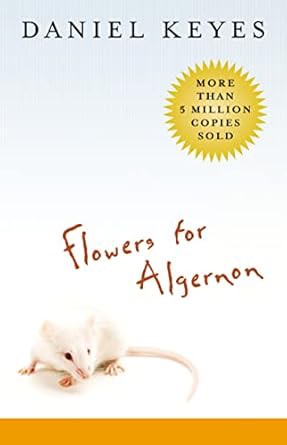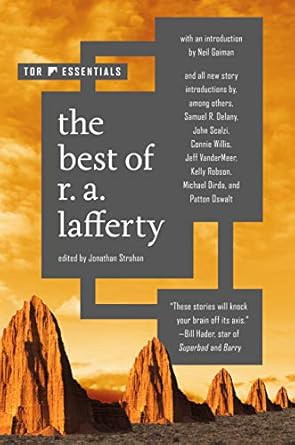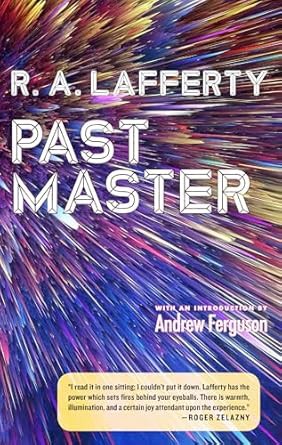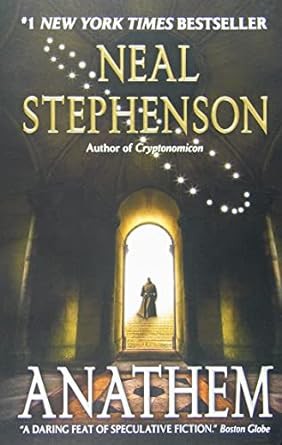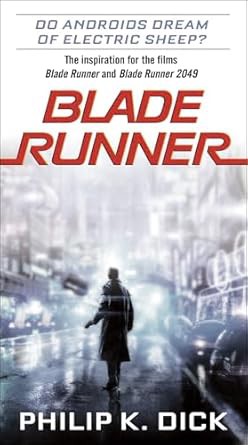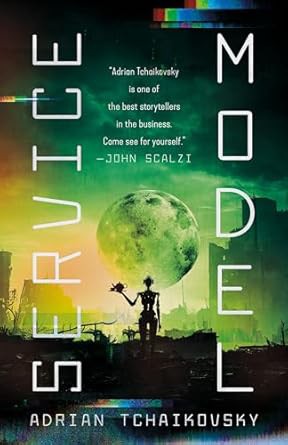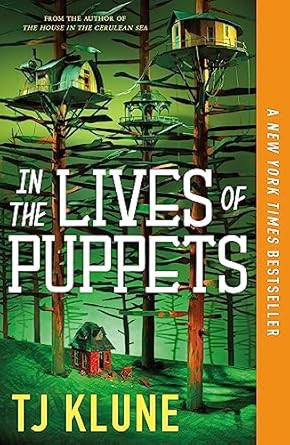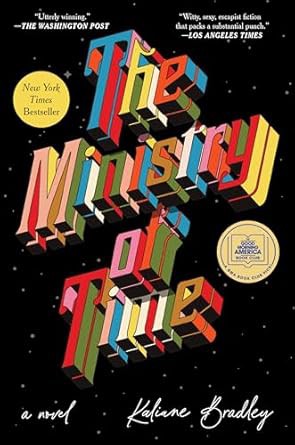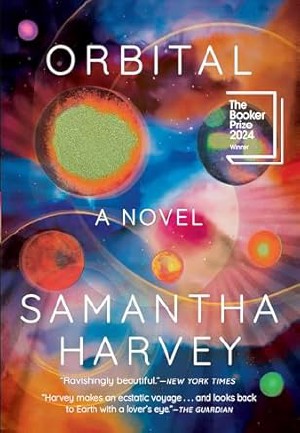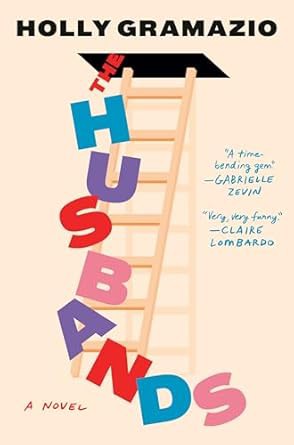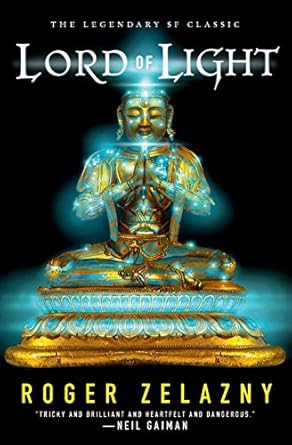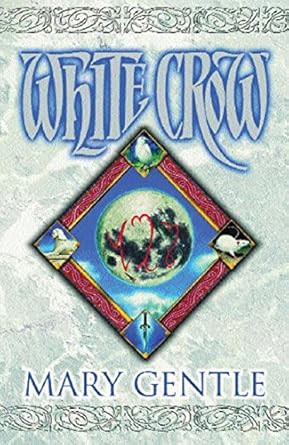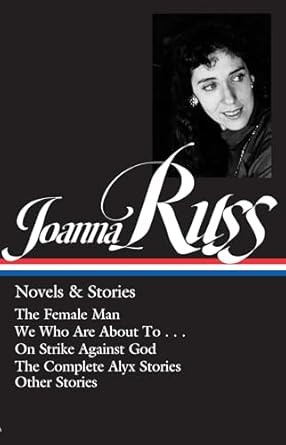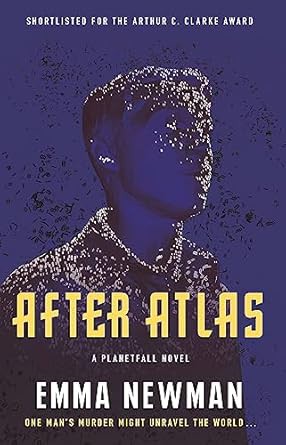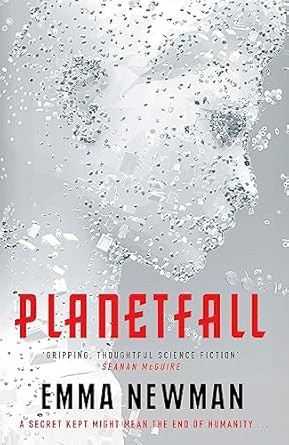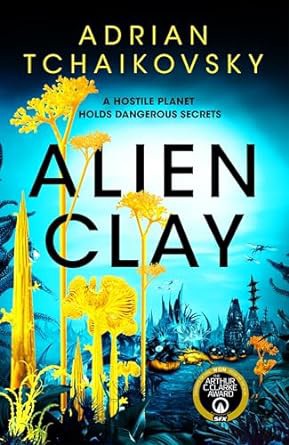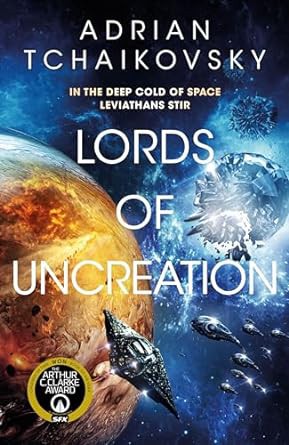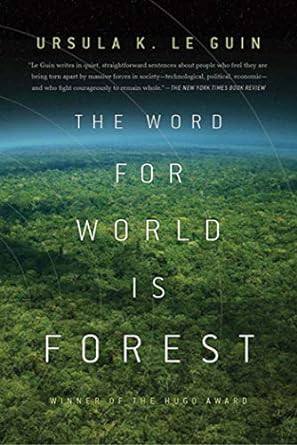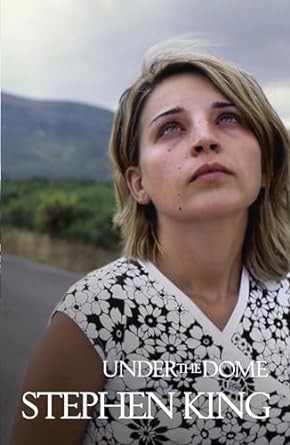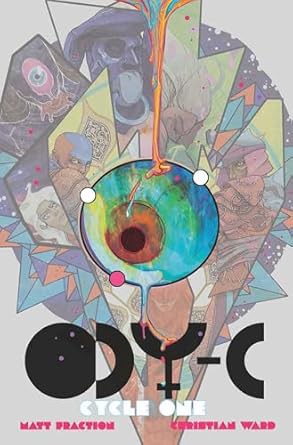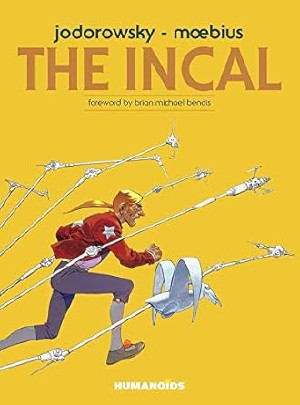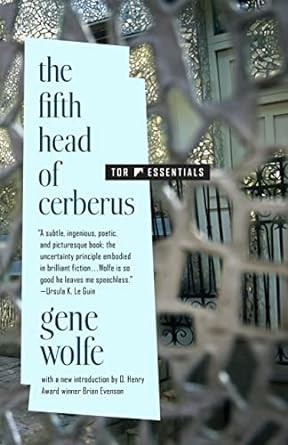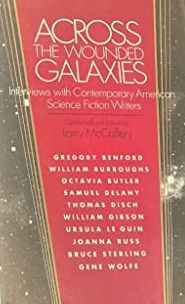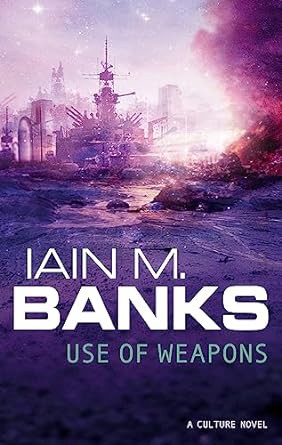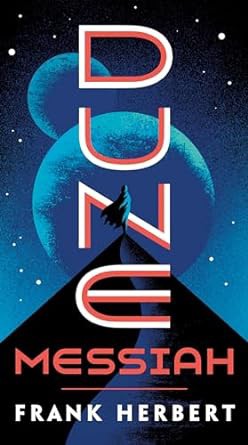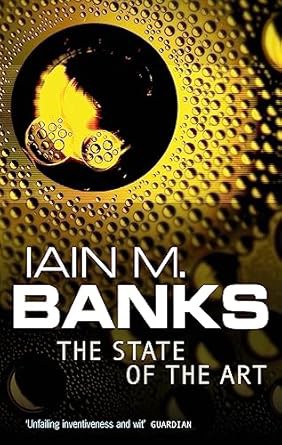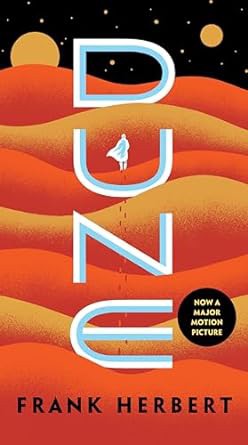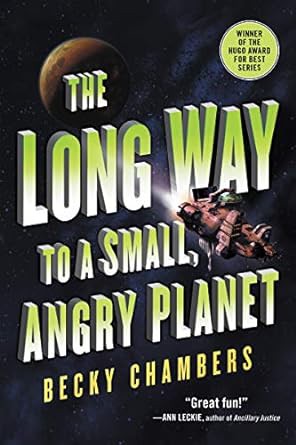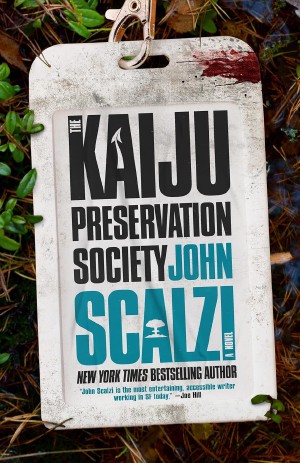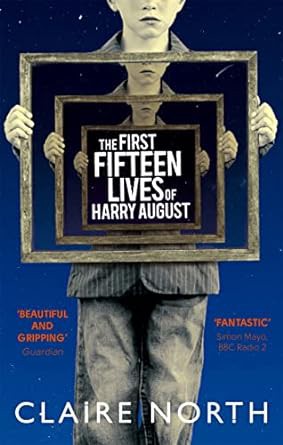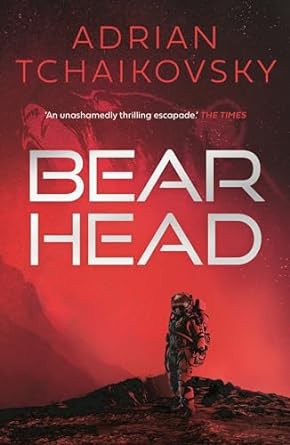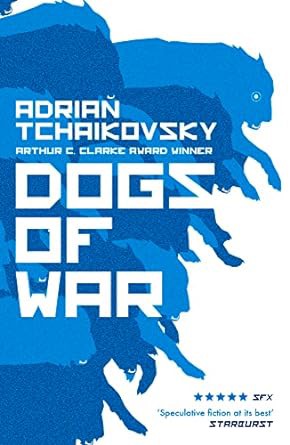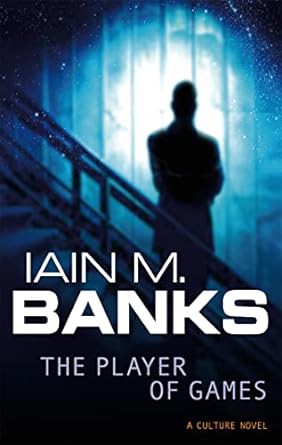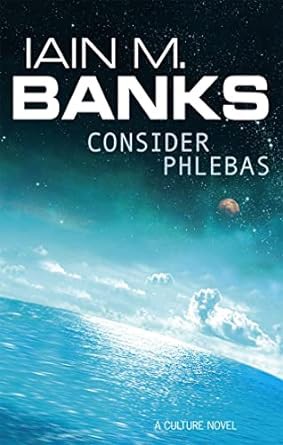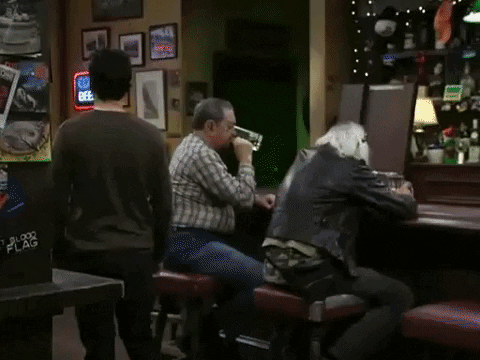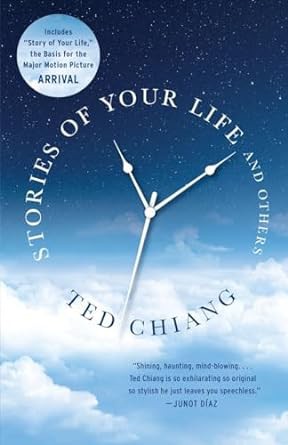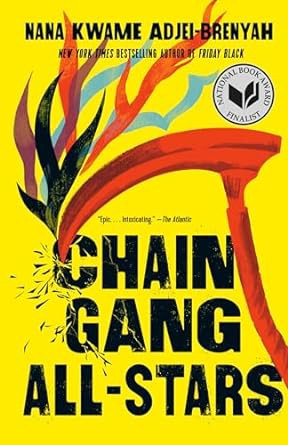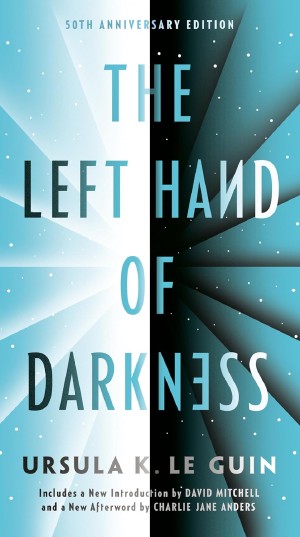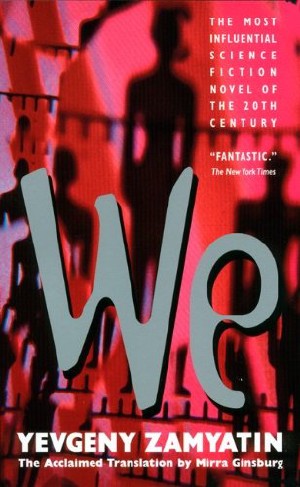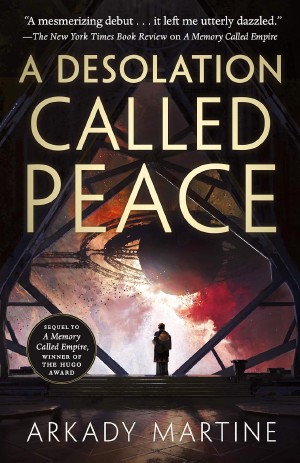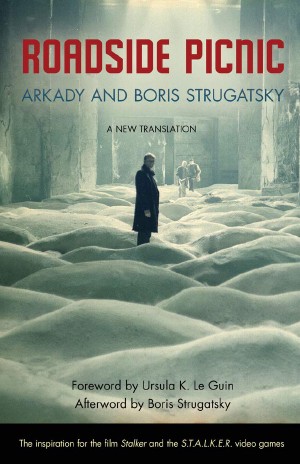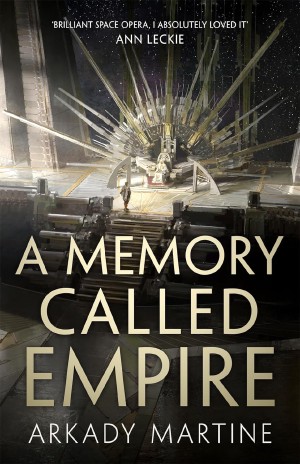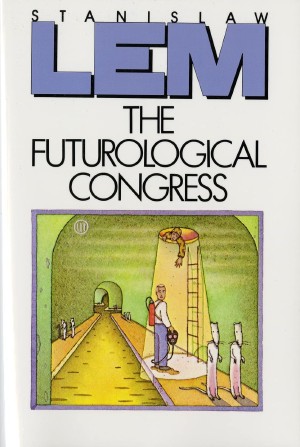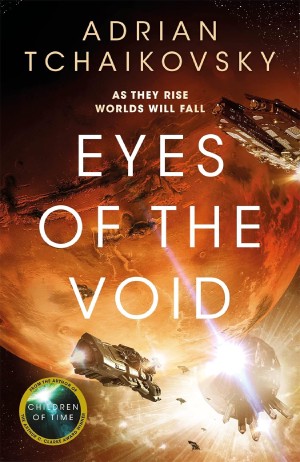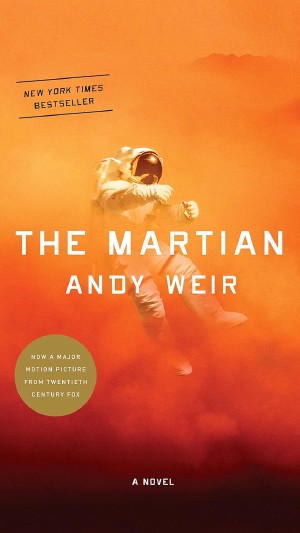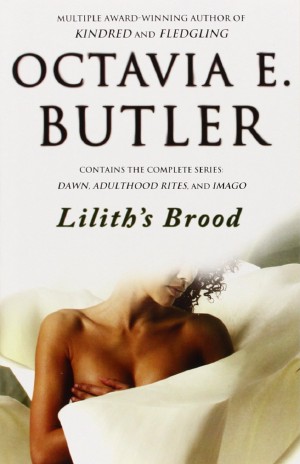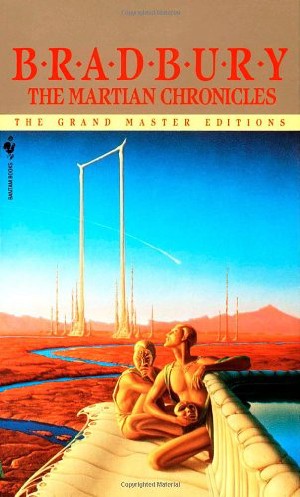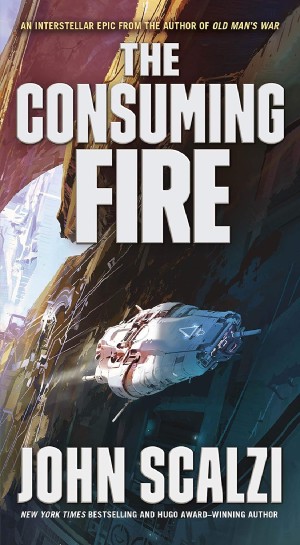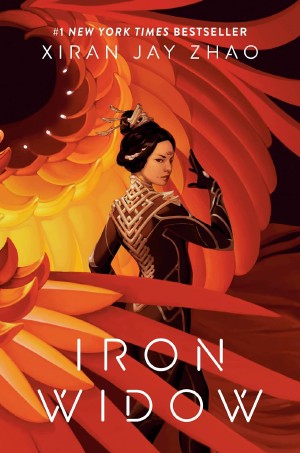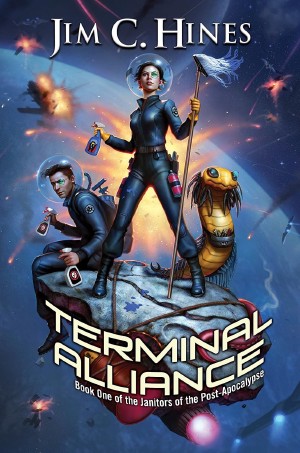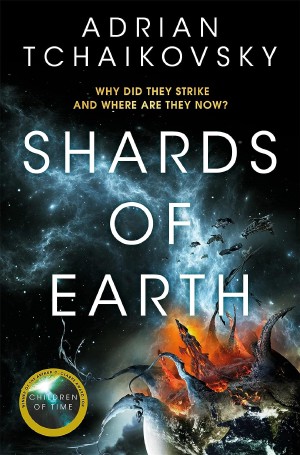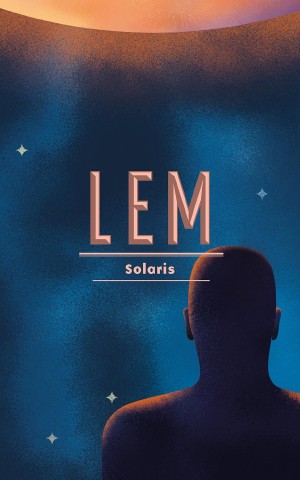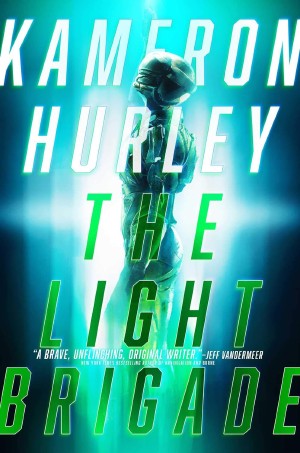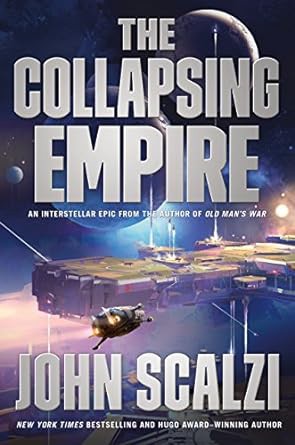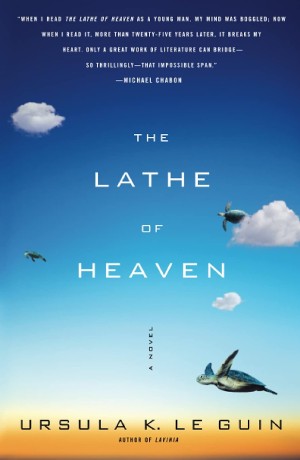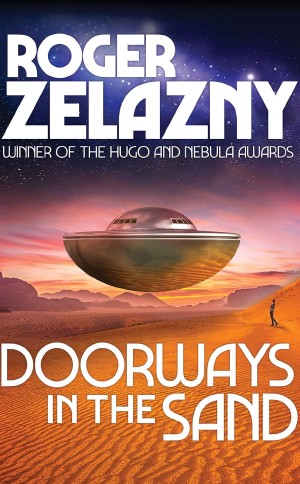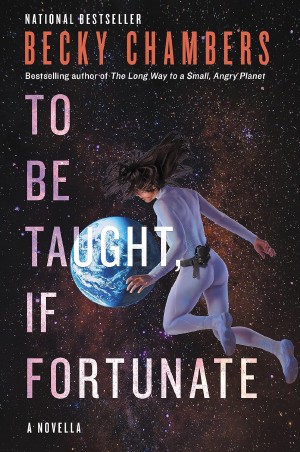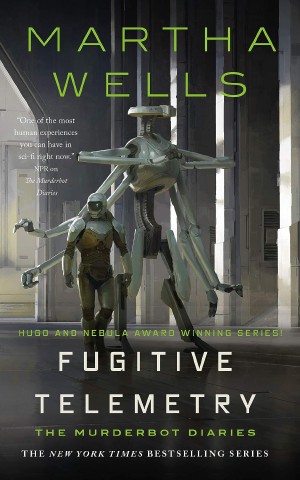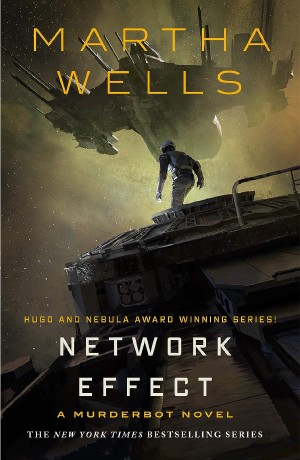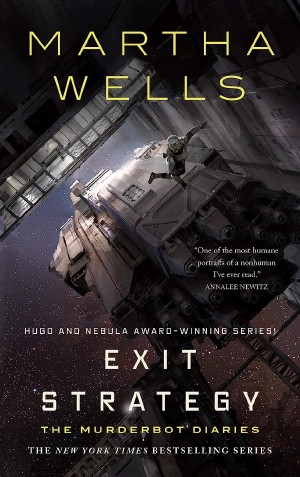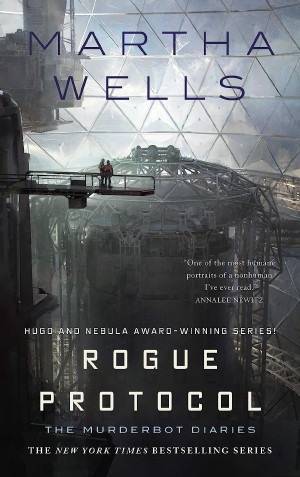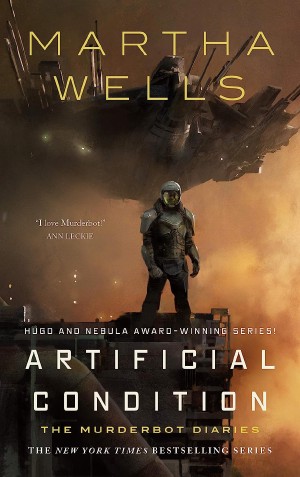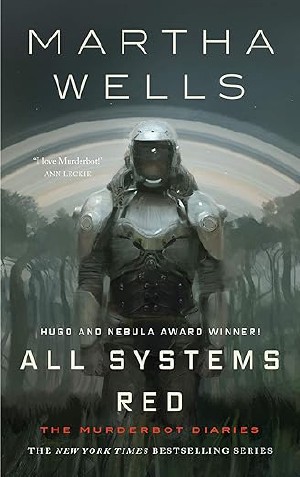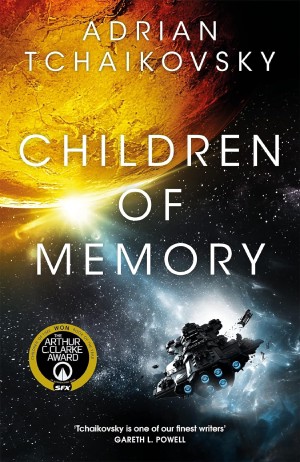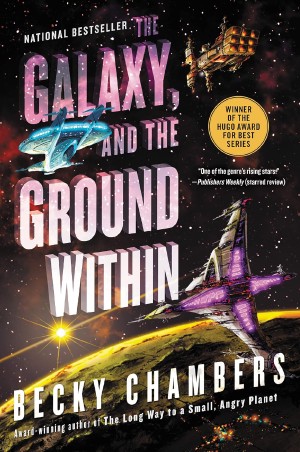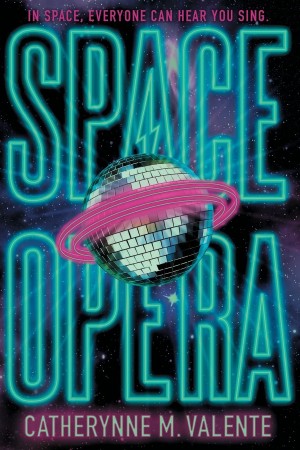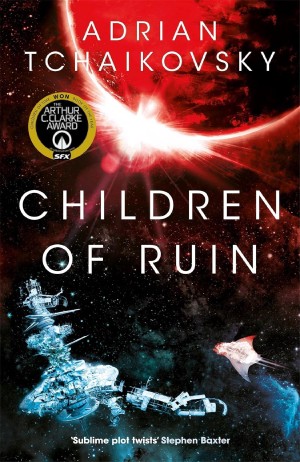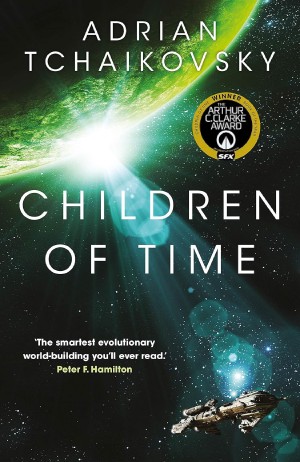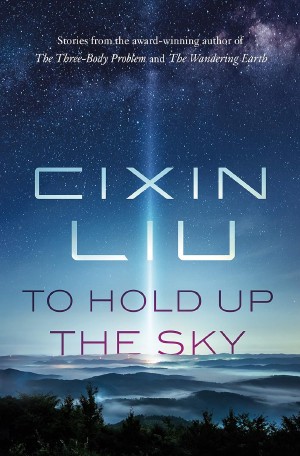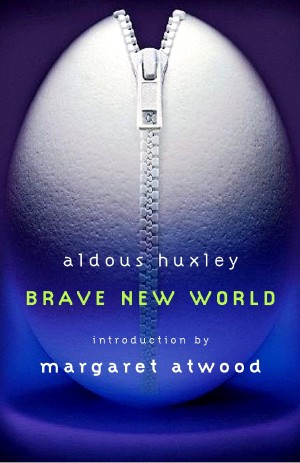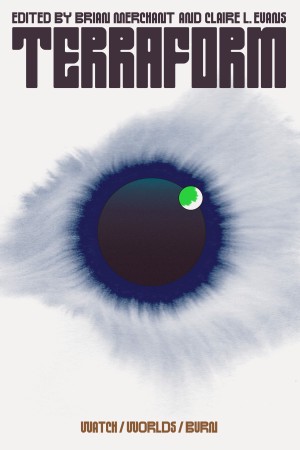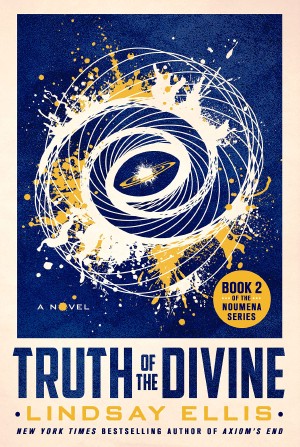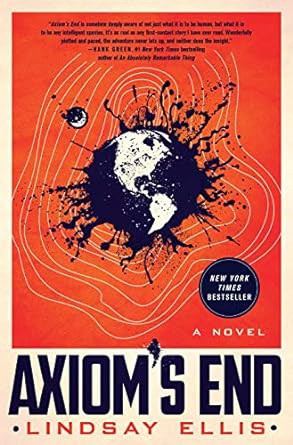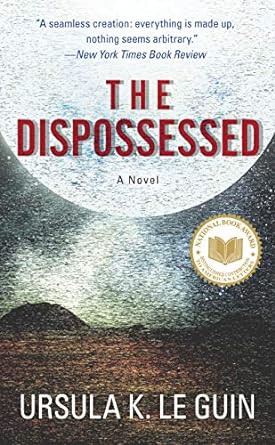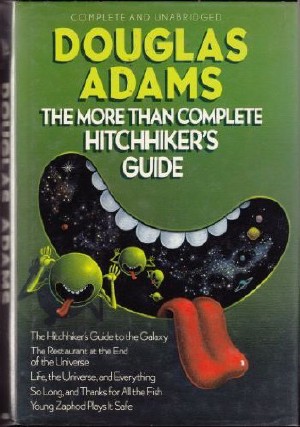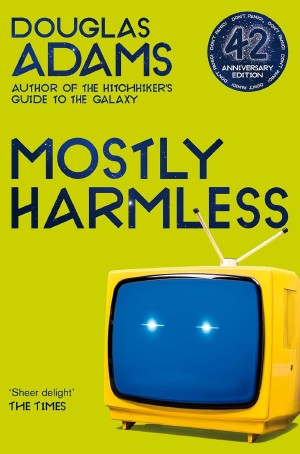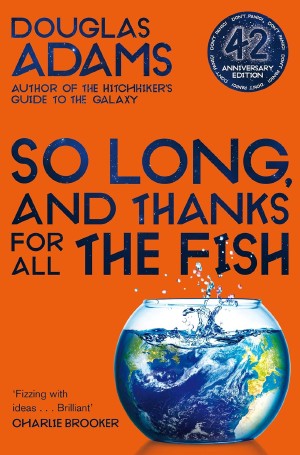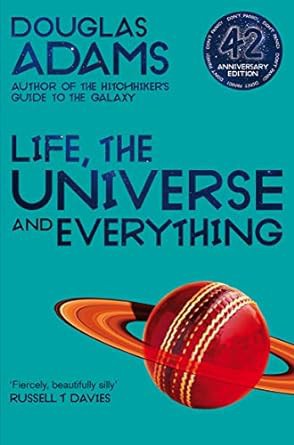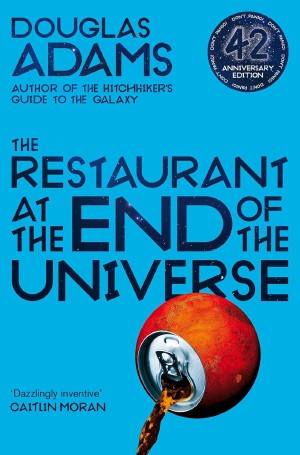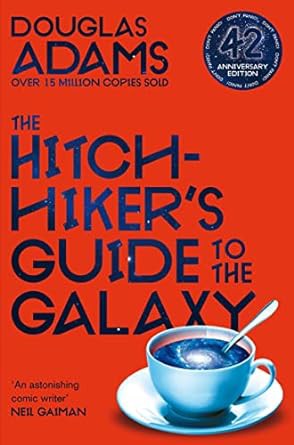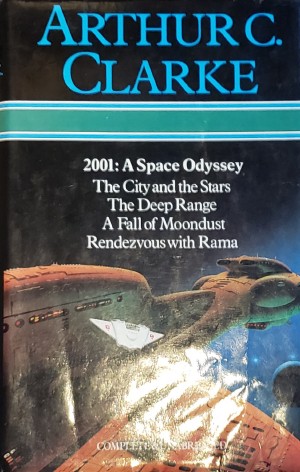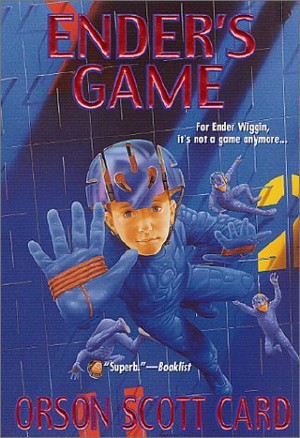Charles, a valet robot, is let go from his job and then goes on a journey of self-discovery. Hijinks ensue.
Victor and his robot companions live an isolated life in the forest with the Victor’s father Gio. Victor regularly ventures forth into the nearby scrapyards to salvage parts despite Gio telling him not to.
One day, Victor discovers something that changes the course of his life forever. Hijinks ensue.
A woman working for the Ministry of Time is tasked with helping assimilate a sailor pulled through time, who more than a hundred years prior was on a doomed Arctic expedition and would have died otherwise. Hijinks ensue.
An unmarried woman comes back home after a night out, only to find a strange man in her home.
He claims to be her husband and she confirms this…
And there’s more husbands where he came from (the attic). Hijinks ensue.
A collection of novellas featuring the same two characters set in various interesting fantasy and fantasy-adjacent settings. White Crow is Mary Gentle’s response to all the bad low effort fantasy that was flooding the market in 90s and early 00s.
The Female Man is a more interesting and consistent story about sex and gender than Le Guin’s Left Hand of Darkness. Russ is a poet and it shows. Russ hits the reader with evocative words and images that still hold up today (mostly). The Complete Alyx Stories haven’t, but they were influential to writers that came later, like Mary Gentle (as seen in the foreword to her White Crow collection)… So I’m glad Russ wrote them.
I didn’t know this was a detective mystery novel (not my favorite). At least you can see this in the first few pages unlike in Emma Newman’s previous novel in her Planetfall series, which isn’t a mystery detective novel but wants to be one.
Compared to its predecessor, After Atlas is way more polished and mostly focuses on developing the interesting parts of the universe but surprisingly retains a super rushed ending that doesn’t exactly come out of nowhere but it feels like it.
Constant “mystery cucking” for 95% of the novel, a super rushed ending and paper-thin antagonists heavily detract from the interesting POV and the “promised land” religious/scientific colonial premise and setting, which is sadly a little underdeveloped.
Meh.
Can our ragtag crew of loveable space scoundrels kill God and save the universe?
Ummmmm probably?The Luau served a first-rate venison steak. What would they say on old Earth if they saw one man eating a kilogram of meat at one meal? Poor damn soybeansuckers!
Hoorah US military (but in SPACE) does a colonialism, oppressing and enslaving the sentient beings on a planet to extract the valuable resources from the land, wood. The oppressed people learn about the concept of murder from the Humans and use it to fight back.
A small American town is trapped under a gigantic forcefield (the Dome). Hijinks ensue.
I tried to write a book that would keep the pedal consistently to the metal. Nan [King’s editor on Under The Dome] understood that, and whenever I weakened, she jammed her foot down on top of mine and yelled (in the margins, as editors are wont to do), ‘Faster, Steve! Faster!’
Stephen King on writing Under The Dome
The Fifth Head of Cerberus is three novellas Frankenstein-ed together, it lacks the cohesiveness that Wolfe’s Book of the New Sun has. It feels like a prototype of what Gene Wolfe would go on to write.
Interviews with a bunch of science fiction writers. It’s great if you’re interested in getting to know your favorite author’s perspective or if you’re interested in getting recommendations from them.
Use of Weapons, it’s about Iain Banks’s utopian Culture, and how it deals with autocrats and a freelance mercenary named Zakalwe who doesn’t like how the Culture deals with autocrats, so he takes matters into his own hands.
This is a decent novel but not one of my favorites from Iain Banks. It doesn’t stick the landing IMO.
An inversion of its predecessor Dune, Dune Messiah tells the story of Paul Atreides 12 years later, now sitting on the Imperial throne, post-universe spanning jihad, being responsible for the brutal killings of billions of people… Our “hero”.
Becky Chambers’ space opera following the scrappy and loveable crew of the Wayfarer, tasked with their biggest job yet.
The Kaiju Preservation Society is John Scalzi’s attempt at writing a Jurassic Parc-esque light sci-fi romp that pokes fun at billionaires and postures as hard as a heterosexual white man like John Scalzi can about inclusion and diversity.
A man dies and is reborn over and over again retaining the memories of his past lives. He’s not alone. Hijinks ensue.
What if you combined Johnny Mnemonic and Total Recall but the data in Johnny’s brain is a sentient “personality upload” of a bio-engineered war bear with 12+ PhDs? Also, there’s SuperTrump who’s using his infinite charisma to put chips in people’s brains to get them to comply with anything and everything he wants (yikes).
That’s Bear Head.
Adrian Tchaikovsky strikes again. Human animal hybrids with developing consciousness. Check. Hive mind consciousnesses. Check. Empathy porn. Check.
I might enjoy Dogs of War more than Children of Time? It’s more efficient and covers many of the same themes with many more interesting characters.
The ultimate gamer Gurgeh is tired of his life in a post-scarcity society because he’s played every game there is and nothing and no one can put up a challenge. He’s given an opportunity to spice up his life, he takes it. Hijinks ensue.
Take a shot every time Chiang brings up God (Tower of Babylon, Division By Zero, Hell is the Absence of God), writes about characters trying to be or become God-like by breaking through some kind of barrier, mental or physical (Tower of Babylon, Understand, Story of Your Life, Seventy-Two Letters), a scientist does science/deep-thinking, maybe discovering some new technology, and tries to convince the reader that said science will completely change everything they know to be true (Understand, Division By Zero, Story of Your Life, Seventy-Two Letters, Liking What You See: A Documentary).

You will plastered out of your mind.
What if you combined:
The Running Man-esque gladiatorial combat as entertainment with some Battle Royale with some pro wrestling theatrical vibes sprinkled on top with some Naked and Afraid and light it all up?
You get Chain-Gang All-Stars, that’s what you get.
The king was pregnant.
An anthropologist-like character lands on a planet with people who exhibit sexually differentiated physical characteristics, male or female depending on the circumstances, for a few days every month. Hijinks ensues.
In working through my thoughts after reading this trashfire of a novel, I wrote five first drafts of a review. They’re incomplete but I’m posting them here mostly un-edited (just some typo fixes) for posterity. They’re either too incomplete, too snarky, too snooty or too mean-spirited to post on Goodreads.
I love the S.T.A.L.K.E.R. games! Especially the third one. It’s a game I always come back to over the years.
Reading through the original inspiration for the games was a real pleasure.
A Memory Called Empire has big “Hugo award winner” energy: an interesting premise, consistent and intriguing world building, a promising start and a propulsive ending.
I loved my time with it and very excited to dig into the next book in the series although I suspect that it won’t be as good.
Stanislaw Lem pops off once again. I’m blown away at how he can integrate all these disparate emotions and ideas into one novel.
The best “second novel in a trilogy” that I’ve read in a while. To no one’s surprise, Adrian Tchaikovsky is responsible.
Eyes of the Void clicked for me when I realized that Adrian Tchaikovsky is an avid tabletop roleplayer and this novel comes alive because he’s basically role-playing (to perfection) all of his characters.
He’s thought about (and nailed) the way each character thinks and speaks based on where they’re from, who they are, their culture, etc. He’s great at this and you can see this in all of his work but The Final Architecture series feels built for him to flex his ability to write great characters.
An astronaut is abandoned on Mars after a dust storm separates him from his crew. Through journal entries, he tells the story of how he tries to survive.
I was blown away by the premise of Dawn (the first novel in the trilogy) and its execution. The remnants of humanity, after a nuclear apocalypse occurs, are “saved” by aliens and forced to choose between mating with their saviors or never being able to have children again. The rest of the novels didn’t hit me as hard but they were interesting nonetheless.
Not my favorite John Scalzi novel but it was fun. I prefer when he doubles down on the absurd and comic modes.
This series is not that, although it does have its funny moments, but it’s an enjoyable romp.
Big robots,
fighting off aliens,
piloted by pairs of young men and women (mostly boys and girls), with the men draining the life force from the women (often killing them in the process).
Wu Zetian, eventually becoming the Iron Widow, is sold to the army by her family to become a concubine-pilot. She has a plan to avenge her sister, burn the system to the ground and build it back up again.
Dayummmmmm this was good.
This book is a joke and not a very funny one. It fails completely in its stated goal of being funny.
The tonal clash between the comedic intent of the author and the violent story centered around a group of janitors trying to stop a genocide is jarring.
The characters are nothing more than caricatures and this is a trainwreck waiting to happen given the inclusion of a comic relief autistic character.
A great space opera by the king of writing alien aliens. It’s a fantastic romp where we follow free adventures of a ragtag group of scoundrels doing their best to save the universe.
What could have been just “another one of those” is greatly elevated by the Adrian Tchaikovsky touch.
Fantastic genre-bending sci-fi.
My mind’s eye has never been very good so I rarely latch on to descriptions of the spaces that characters find themselves in. But, the descriptions of Solaris’s space station and the planet it’s orbiting were so vivid and interesting that it elevated the story for me.
The space station’s color scheme of white combined with stripes of vibrant colors lit by the alternating blue and red hues of the system’s both suns was breathtaking.
The Light Brigade is a story about breaking people down and putting them back together again, both mentally and physically, to turn them into perfect soldiers/monsters.
It’s a wild ride that kept me hooked all throughout. It subverts many of the science fiction tropes you’re familiar with to keep you guessing.
Felt more like a soap opera than a space opera at times.
There’s a lot of people thinking about, talking about and having sex. There’s a lot of scheming and plotting that sometimes makes sense but often doesn’t.
So I rolled with it, strapped on my suspension of disbelief pants and enjoyed the ride.
In fair puzzles there should always be a way out. But I saw no doorways in the sand, and try as I might I could not make the puzzle fall fair.
Doorways in the Sand tells the story of Fred Cassidy the “Eternal Student”, a man who’s spent 13 years of his life as an undergrad.
He does everything he can to avoid getting a degree so he can continue benefiting from his uncle’s generous will, predicated on him being in school (once he graduates he’ll be cut off).
Fred’s idyllic existence is disrupted by the theft of a priceless alien artifact, the star-stone. He’s a person of interest for reasons outside of his control and so he is pursued by humans and aliens alike who think he can help them find the stone (can he?).
“You are a living example of the absurdity of things.”
Hijinks ensue.
Humm…
It was OK.
Unlike The Galaxy and The Ground Within (also written by Becky Chambers), this novella doesn’t have a lot of space (see what I did there?) to develop its characters and have you care about them.
All Systems Red is about a sentient robot-human hybrid, calling themselves Murderbot, a slave to a mega corporation, tasked with protecting the humans it’s told to protect.
The Galaxy, and the Ground Within is a science fiction novel about a diverse cast of characters from all over the galaxy, stuck at an inter-planetary truck stop for an indeterminate span of time, getting to know one another and helping each other overcome (or make peace with) problems in their personal lives.
As the characters learned about each other and gradually opened up about themselves, I started to see parts of myself reflected in them making me feel invested in the mostly low stakes interactions occurring between the characters.
“We’re going on an adventure!”
If you liked the previous novel in this series, Children of Time, you’re likely to enjoy this one just as much if not more (I definitely did). If you haven’t read it, I suggest you start with that one (also great) and then read this sequel. Otherwise, you’ll be missing out.
A very human story with Alien aliens, AI/human constructs and time “travel”.
The first Adrian Tchaikovsky story I read and perhaps the best. Once you pick this book up, you won’t be putting it back down until it’s done.
To Hold Up the Sky is a collection of short stories from Liu Cixin who’s mostly known for his Three Body Problem trilogy.
This collection is a mixed bag. The stories range from very bad, to middling to great. Two (out of eleven) stories really spoke to me and the rest were mostly meh.
Brave New World is a dystopian novel from 1932 about dystopian shit and it has a lot to say about the dystopia we’re currently living in.
A collection of science fiction short stories that’ll make you go “huh, interesting…” and might encourage you to think about how technology affects your life currently and how it might affect it in the not so distant future.
Aliens on Earth in the early/mid 2000s and everything that follows from that. Sequel to Axiom’s End, continues Cora’s story and adds some new fresh characters (alien and otherwise) into the mix.
Set in 2007, the novel is about a U.S. government coverup of contact with extraterrestrial life. You follow the story of Cora, daughter of an exiled whistleblower, who finds herself in the middle of the whole ‘alien’ situation.
